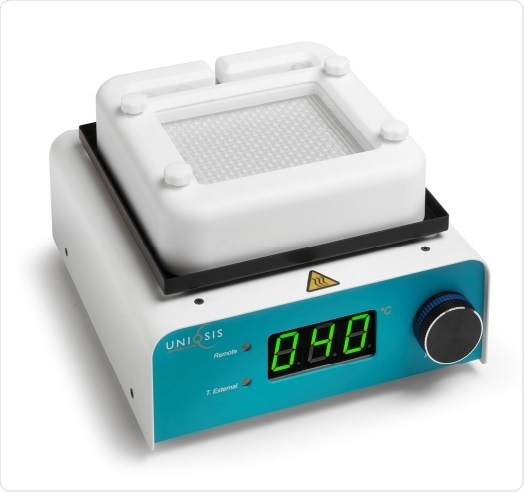Mar 9 2018
Uniqsis announces HotChip™ - a new standalone heater module that provides precise temperature control of flow chemistry glass static mixer (GSM) chip reactors.

The Uniqsis range of chemically-resistant borosilicate glass chip reactor blocks can be used as static mixers to ensure effective mixing before a coil reactor or to perform fast exothermic experiments such as nitration’s or bromination’s where reaction times are often less than 1 minute.
Available in sizes from 270µl to 20 ml - GSM chips from Uniqsis can be used to perform reactions from -80°C to over 225°C. GSM chips up to 2 ml can be operated up to 40-bar and are available in 2-channel or 3-channel configuration. Larger GSM chips of 10ml and 20 ml have a premixing channel followed by a residence domain and can operate up to 10-bar.
Incorporating a clear, bright LED display, HotChip™ is very easy to use as a standalone module. Simply 'push-to-set' and 'push-to-start' using the rotary controller. Alternatively, HotChip™ can be remotely controlled using a FlowSyn flow reactor system, a Binary Pump Module™ or using the powerful Uniqsis FlowControl™ system control software.
The HotChip™ insulated cover features a cut-out that allows it to be conveniently removed and refitted without the need to disconnect the fluidic connections. An enhanced cool-down option is available which utilizes the low pressure compressed supply available in most laboratory fume hoods to accelerate cooling.